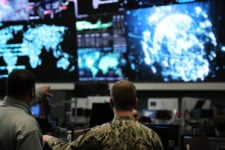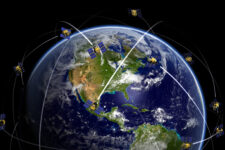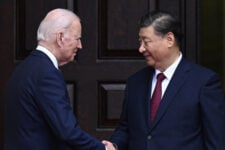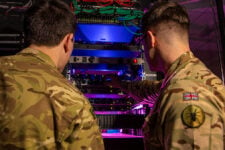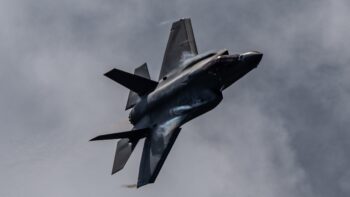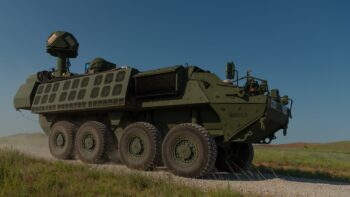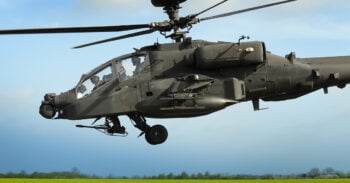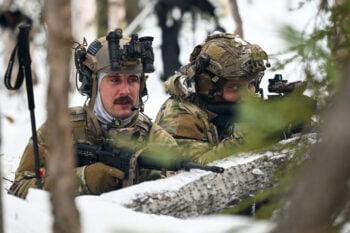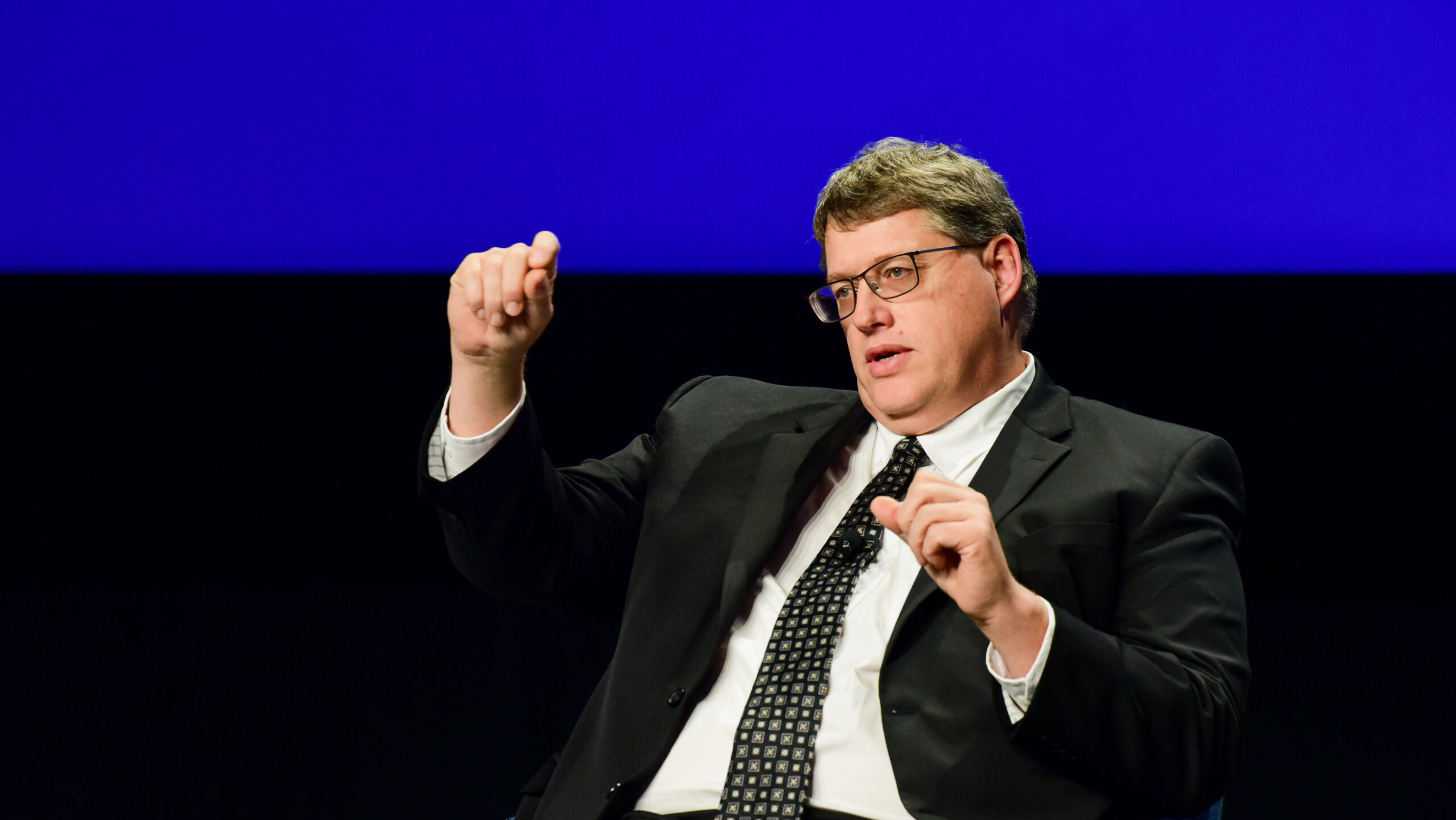
Mr. Gregory L. Ryckman, Deputy Director for Global Integration, Defense Intelligence Agency, addressing the DoDIIS Worldwide Conference 2023, December 12, 2023, in Portland, Oregon. (Petty Officer 2nd Class Wade Costin, Defense Intelligence Agency)
PARIS — The explosion of open source information has so changed the game for intelligence collection and analysis that today a senior official called for a “professional cadre” of open source specialists to take the place of relative “amateur” analysts in the Intelligence Community who have stepped into the breach so far.
Greg Ryckman, DIA’s deputy director for Global Integration, said that in years past, open source info would be the “salt” analysts would sprinkle on top of otherwise completed intelligence products gathered with secret methods. But now, he said, the paradigm has “flipped” and it’s the technical, secret intelligence that’s become the salt on the “main course” that is open source intel.
“I think that we’re struggling as an intelligence community at this point with this volume of information that’s out there and being able to get it, make sense of it and then translate that into something the analyst can actually use. That, I think is our challenge,” he said at a webinar put on by the Intelligence and National Security Alliance.
All that intelligence, with all the expertise it requires to do intake properly, he said, “is why I’m so convinced we need a professional cadre that does open source collection for a living, not amateur — I’m an analyst so I can say this — amateur analysts who are trying to imitate a collector. They’re going to be able to figure out how to do some of this smartly, so that we’re protecting our equities, and we’re protecting IC priorities as we’re going along.”
Ryckman, who before his current job was the DIA’s director of analysis, said as of now intelligence analysts are having to do some work of OSINT collection professionals, like verifying sourcing and corroborating information, “on the side” while they do their main job of producing analytical products.
The Intelligence Community is well aware of the need for a more professionalized open source workforce. The DIA created an open source intelligence center years ago, and in March the Director of National Intelligence and the CIA released a first-ever “IC OSINT” strategy — though it acknowledged it was just a start.
“The IC OSINT Strategy represents the beginning of a long-term process that will professionalize the OSINT discipline, transform intelligence analysis and production, and create new avenues for partnering with brilliant American innovators and like-minded foreign partners,” Director of National Intelligence Avril Haines wrote in the strategy’s introduction. Developing the “Next-Generation OSINT Workforce and Tradecraft” is one of the strategy’s four “focus areas.”
Ryckman said today the DIA has a “defense intelligence enterprise manager” who’s attempting to “bring some focus on training and tradecraft across the enterprise,” but the IC needs a larger revolution in how it deals with open source information. And it’s got years, not decades, to figure it out.
“What keeps me up tonight … is we are in a different environment than we have been in the last 20 years, and we got comfortable in that environment,” he said. “But we’re now in a situation with a data explosion going on, crisis in Ukraine, crisis in the Middle East, there’s growing pacing challenges in terms of China. All of those things are happening at the same time, and if we don’t get our arms around this data piece, it’s going to slip away from us. And the stakes are incredibly high.”
“Who does better at being able to quickly make sense of a thing and get that in the hands of decision-makers and warfighters will be as important if not more important than who has the better bomb, right?” he said.
US postured to lose without a Standing Combined Joint Task Force in INDOPACOM
In this op-ed, John D. Rosenberger discusses the need for a Standing Combined Joint Task Force to face the China threat.

